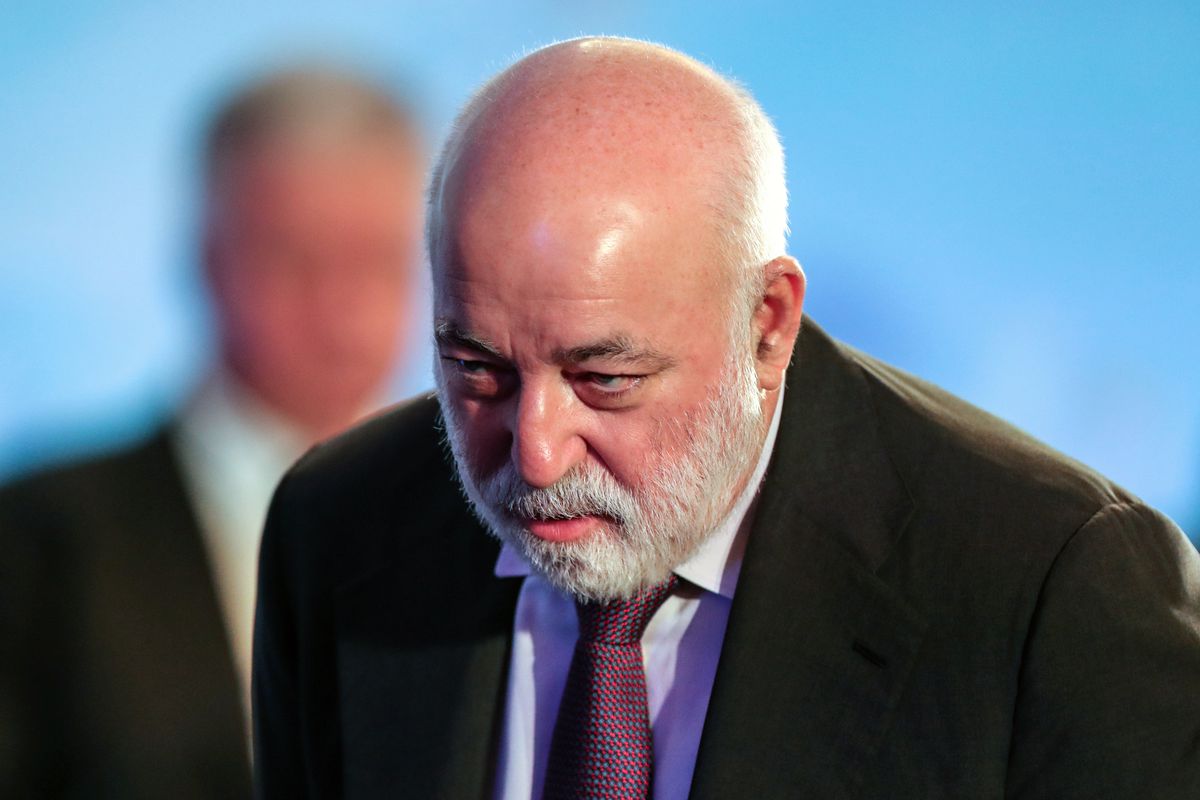Shortly after the passing of the previous Russian owner, a new Russian owner has emerged in the ownership structure of the Central Bohemian Safina factory. Notably, this new owner has connections to the sanctioned billionaire Viktor Vekselberg.
Safina, a well-known Czech company specializing in the production of precious and non-ferrous metal products in Vestec near Prague, has seen a change in ownership.
Sources from Seznam Zpravy and information from Russia confirm the passing of Alexander Okatov, which occurred at the beginning of the summer at the age of 55.
Remarkably, shortly after Okatov’s demise, a completely new Russian owner, linked to oligarch Viktor Vekselberg, who has been under U.S. sanctions since 2018, appeared in the Russian companies controlling Czech Safina.
Despite Okatov’s passing, the official information in the Czech register of beneficial owners has not yet been updated, and Alexander Okatov remains listed as the ultimate owner of Safina.
The management of the Vestec-based company, led by Roman Popov, has refrained from commenting on questions regarding the change in ownership, despite repeated inquiries from the editorial office.
However, Ivan Solomin, a prominent official from the Verkhnyaya Pyshma municipal district near Yekaterinburg, reported Alexander Okatov’s passing on July 6 on his official channel in Russia. Okatov had been managing the local non-ferrous metals processing plant EZOCM until recently.
Okatov officially held a stake in Czech Safina since 2019 through Best Company and two other entities, as reported by Seznam Zpravy in the previous July.
This change in ownership, alongside Safina’s cautious response, is influenced by concerns related to anti-Russian sanctions. Alexander Okatov had replaced the company on behalf of Viktor Vekselberg, a prominent Russian oligarch with ties to President Putin. This transition occurred shortly after Vekselberg, once known as the richest Russian and sometimes referred to as the “aluminum baron,” was added to the U.S. sanctions list.
It is suspected that Okatov’s role in Safina was potentially a cover for Vekselberg, who has since been subjected to sanctions by Canada, the UK, Japan, Australia, New Zealand, and Ukraine. Safina’s Russian management had explicitly denied any association with the oligarch in the past.
However, historical connections between Okatov and Vekselberg suggest otherwise, as the Yekaterinburg plant managed by Okatov was owned by Vekselberg’s Renova group before sanctions were imposed.
The swift transfer of assets after Okatov’s passing in July raises suspicions of potentially fictitious transfers. The Russian Commercial Register indicates that just a week after the news of Okatov’s passing appeared on Telegram, on July 13, Brigita, a company based in Moscow reportedly backed by Sergei Demidov, replaced Okatov as the new owner of Best Company and, consequently, Czech Safina.
Brigita also holds a quarter share in the chemical group Orgsintez, and from there, ties lead directly to Viktor Vekselberg and his Renova holding, further solidifying the connection between the new owner and the oligarch.
The case of Safina and its links to Viktor Vekselberg had previously been under scrutiny by the Czech Financial Analytical Office, but no assets had been blocked in the Czech Republic thus far. This is partly because Vekselberg has not been included in the EU sanctions list, unlike some other Russian oligarchs.
U.S. authorities have been pursuing Vekselberg’s assets since April 2018 when he was added to the U.S. Treasury Department’s sanctions list, alongside other wealthy Russians. These sanctions were imposed due to Russian activities in eastern Ukraine and his attempts to influence U.S. policy.
Vekselberg’s case also revealed his efforts to establish connections with U.S. President Trump. It was disclosed that he had close contact with Trump’s lawyer Michael Cohen and met with him in person in early 2017, just days before Trump’s inauguration, at New York’s Trump Tower. Furthermore, Cohen received half a million dollars from Vekselberg for purported consulting services.
These U.S. sanctions have had a substantial impact on Vekselberg’s global business ventures, resulting in a significant decrease in his fortune and a decline in his ranking among the world’s wealthiest individuals.
Source: seznamzpravy.cz


















